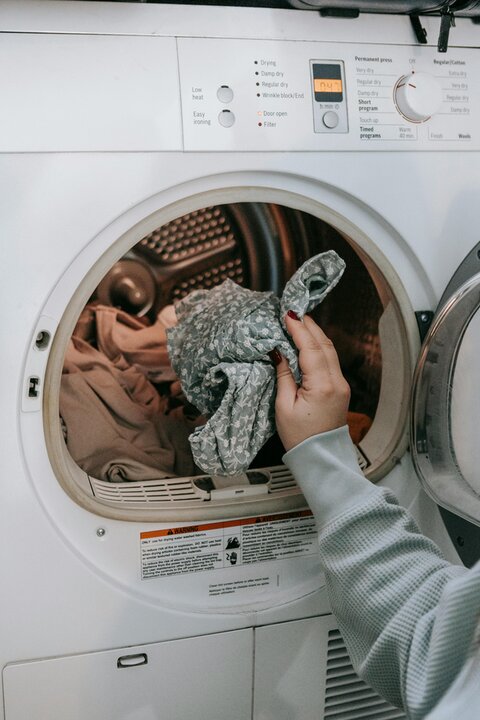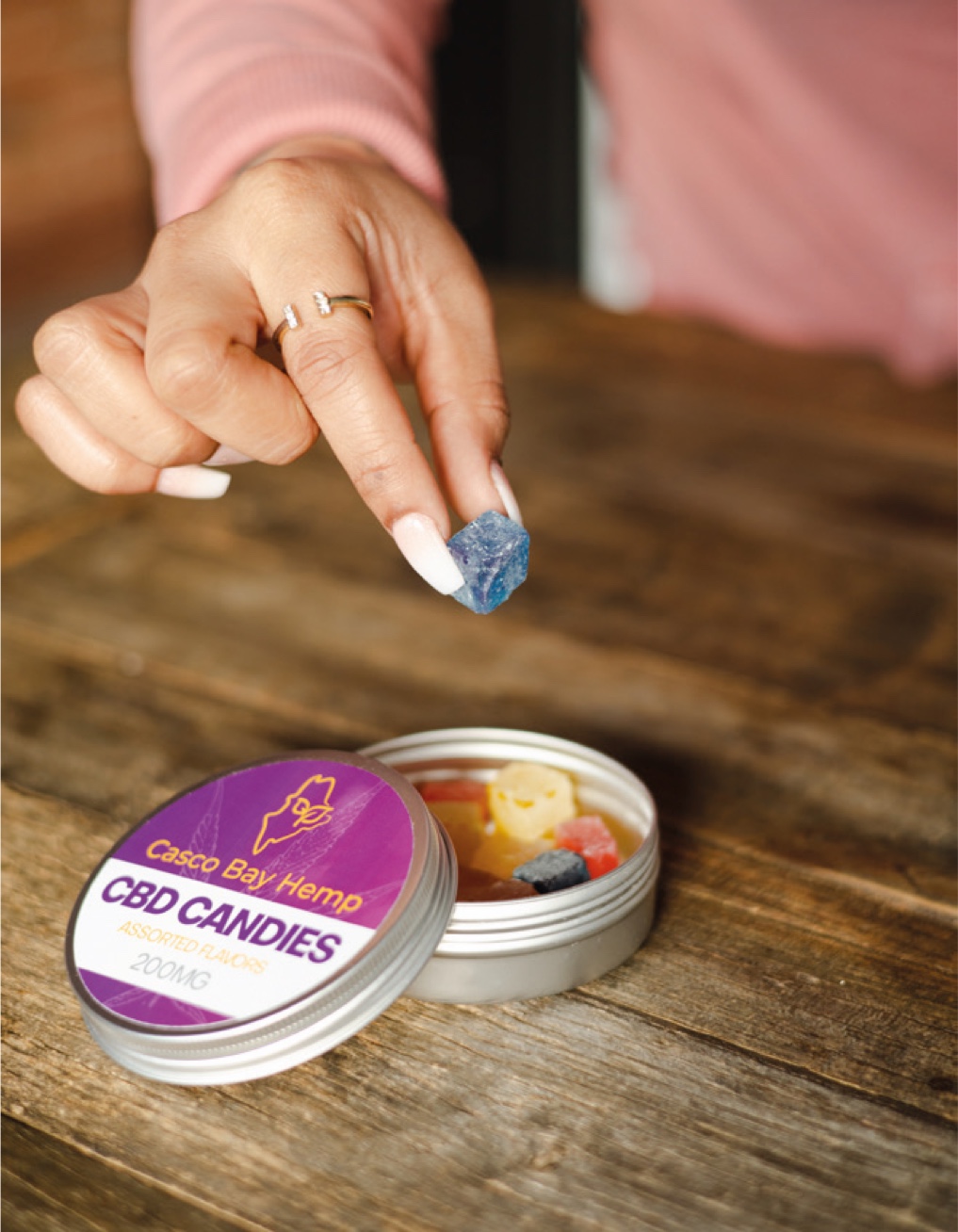COLUMN: CONSUMER PERSPECTIVE
The science of fresh - Consumer trends in laundry
KEYWORDS —
CONSUMER,
LAUNDRY,
CONSUMER BEHAVIOR,
FRAGRANCE,
INNOVATION,
HABITS
Abstract
Studies of major depressive disorder have been correlated with reduced Lactobacillus and Bifidobacteria and symptom severity has been correlated to changes in Firmicutes, Actinobacteria, and Bacteriodes. Gut microbiota that contain more butyrate producers have been correlated with improved quality of life (1).
A study in healthy women providing probiotic yogurt for four weeks showed an improvement in emotional responses as measured by brain scans (2). A subsequent study by Mohammadi et al. (3) investigated the impacts of probiotic yogurt and probiotic capsules over 6 weeks and found a significant improvement in depression-anxiety-stress scores in subjects taking the specific strains of probiotics contained in the yogurt or capsules. Other studies with probiotics have indicated improvements in depression scores, anxiety, postpartum depression and mood rating in an elderly population (4-7).
Other studies have indicated a benefit of probiotic supplementation in alleviating symptoms of stress. In particular, researchers have looked at stress in students as they prepared for exams, while also evaluating other health indicators such as flu and cold symptoms (1). In healthy people, there is an indication that probiotic supplementation may help to maintain memory function under conditions of acute stress.
“
“A study in healthy women providing probiotic yogurt for four weeks showed an improvement in emotional responses as measured by brain scans”
Freshness in laundry has come a long way from simply being a matter of cleanliness. Today, the idea of "fresh" isn't just about removing dirt and stains—it's about delivering a sensory experience that lingers long after the wash cycle ends. From invigorating scents to fabric-softening technologies, consumers now expect their laundry to do more than ever before, reflecting broader consumer trends in wellness, sustainability, and personalization.
Understanding these trends is crucial not just for consumers seeking the best products for their needs, but also for industry professionals striving to stay ahead in a competitive market. As the definition of freshness continues to expand and evolve, being in tune with these nuanced changes is key to innovation and success in the laundry care industry.
The Evolving Concept of Freshness in Laundry
The concept of “freshness” in laundry has significantly evolved over the years. Initially, freshness meant simply achieving cleanliness—removing dirt and odors for a neutral scent. The focus was on the soap and the water, with little regard for scent or fabric care. Over time, this definition expanded with the introduction of synthetic detergents and fabric softeners in the mid-20th century bringing scent to the forefront of the consumer experience, making freshness about adding a pleasant, long-lasting fragrance that kept clothes smelling “just-washed”, catering to a growing desire for a more sensory laundering experience.
In a rapidly changing industry landscape, understanding and adapting to shifting consumer needs and perceptions is essential. A consumer-centric approach that integrates multi-sensory experiences can create deeper connections between consumers and brands, enhancing product attractiveness and emotional impact. By leveraging cross-modal sensory associations, brands can craft multisensory experiences that add substantial value and foster strong consumer relationships. The laundry industry, in particular, can benefit from this approach by focusing on how scents evoke emotional responses. Research shows that aligning fragrance with texture can enhance overall product appreciation.
These days, consumers have high expectations for laundry freshness. However, defining what "freshness" means can also be challenging. For some, it’s all about scent—finding a fragrance that is pleasant, long-lasting, and personal. Others prioritize how well a product cares for fabrics, looking for detergents and softeners that preserve colors, textures, and softness. Consumer researchers, hoping to share clear direction to product developers are often faced with the challenge of uncovering what freshness means.
Adding to the complexity, environmental impact is now a key factor in the concept of freshness. Many consumers want products that are eco-friendly, made with sustainable ingredients, and packaged with minimal waste. For product developers, balancing these varied and sometimes conflicting demands—scent, fabric care, and sustainability—requires a nuanced approach to meet the diverse expectations of different consumers. Today’s consumers demand products that not only smell great but also minimize environmental impact. This has driven innovations in biodegradable ingredients, water-saving formulas, and eco-friendly packaging.
Several key drivers are shaping innovation in laundry products, as brands strive to meet evolving consumer demands for freshness. Technology plays a significant role, with advancements in fragrance encapsulation, fabric protection, and smart laundry solutions that enhance the washing experience. These technologies allow for the creation of products that not only clean but also deliver a long-lasting, consistent scent and superior fabric care. Sustainability is another major driver, with brands increasingly focusing on creating eco-friendly products. This includes the development of biodegradable detergents, low-water formulas, and packaging innovations aimed at reducing plastic waste. Finally, health-consciousness is influencing the market, with consumers looking for products that are safe for their skin and free from harmful chemicals. This has led to the rise of “clean” laundry products, which prioritize safety and transparency in ingredients without sacrificing performance.
These drivers of innovation are not just meeting consumer expectations—they are redefining what freshness means in the laundry care industry, setting new standards for how we clean and care for our clothes.


CURRENT CONSUMER TRENDS IN LAUNDRY
The concept of freshness is evolving rapidly in the laundry care industry, driven by several key consumer trends.
Sustainability has become a significant focus, with a growing demand for eco-friendly and sustainable products.
Consumers are increasingly seeking biodegradable detergents, water-saving formulas, and packaging that minimizes environmental impact. This shift reflects a broader awareness of environmental issues and a desire for products that align with eco-conscious values. For example, DSM-Firmench’s New PopScent EcoMax is a fragrance capsule made exclusively with 100% biodegradable ingredients to meet consumer priorities on product performance and sustainability. Product development is also integrating behavioral science insights to tailor offerings to individual preferences, ensuring that freshness resonates with consumers on both an emotional and functional level. Recent research has shown the impact fragrance can have on consumer laundering behaviors. McQueen et al. (2019) found that detectable odors in clothing lead consumers to wash clothes less sustainably. About half of respondents changed their laundering habits due to odor, often using hot water instead of cold and less frequently using machine dryers.
Customization and personalization are also on the rise. Consumers now expect laundry experiences tailored to their individual preferences, from custom scents that match personal tastes to specialized fabric care solutions that address specific needs. Behavioral science plays a role here, as understanding consumer preferences and perceptions helps brands develop products that resonate on a personal level. Innovations such as laundry detergent sheets or tiles that offer convenience and targeted performance, are examples of how personalized solutions are meeting evolving demands for both efficacy and user experience. For example, these new formats are being promoted as easier for students moving out of the home and needing to do their own laundry for the first time. In a recent Kantar study, researchers found that consumers are increasingly using shorter cycles, with 80% of consumers opting for the quick wash options at least once per week. Prompting brands like Unilever’s Persil to develop new short cycle products.
Health and safety concerns have become increasingly prominent, with consumers prioritizing products that are safe for their skin and free from harmful chemicals. There is a strong demand for allergen-free formulas and “clean” products that offer effective cleaning while minimizing exposure to potentially irritating substances. This trend underscores the importance of transparency in ingredient lists and the development of formulations that address health-conscious consumer needs.
Finally, technological integration is reshaping laundry care. Smart appliances and tech innovations are enhancing consumer expectations and experiences. From washing machines that optimize cycles based on fabric type to app-controlled dispensers that use precise amounts of detergent, technology is making laundry more efficient and user-friendly. Unilever’s Dirt is Good (Persil) and Comfort brands are partnering with Samsung to use AI in laundry care. The new AI Wash feature in Samsung’s EcoBubble machines adjusts water, detergent, and wash times based on fabric weight and stains, cutting energy use by up to 70%. Launching in the UK and Ireland, the partnership offers consumers up to six months of free Persil detergent with a new Samsung washing machine. This initiative aims to improve laundry efficiency and meet the growing demand for smarter home appliances.
Together, these trends highlight how the concept of delivering freshness in laundry care is expanding beyond traditional notions of cleanliness, incorporating elements of sustainability, personalization, health, and technology into the fabric of modern laundry care.

FRESH IMPLICATIONS FOR INDUSTRY
The evolving consumer perception of "freshness" is driving significant innovation in laundry product development. As consumers increasingly prioritize sustainability, new formulations focus on biodegradable ingredients and water-saving capabilities, aligning with eco-conscious values. Innovations such as detergent sheets or tiles are responding to a desire for convenience and precise dosing while maintaining a strong emphasis on scent longevity and fabric care. These new formats integrate efficient solutions that offer both practical and sensory benefits.
Brands will need to continuously monitor and track consumers' evolving desires for freshness, sustainability, and safety. Highlighting the dual benefits of enhanced freshness and eco-friendliness can appeal to a broad audience. By addressing the holistic concept of freshness, brandscan build strong connections with their target audience and differentiate themselves in a competitive market.
The concept of freshness in laundry care is likely to continue evolving, with new trends emerging as consumer expectations shift and continue to grow. Advances in technology may lead to even more personalized and efficient solutions, such as smart detergents that adapt to individual washing habits or AI-driven recommendations for optimal freshness. The focus on sustainability will likely intensify, driving further innovations in eco-friendly formulations and packaging. As consumer awareness of health and environmental issues grows, the definition of freshness will expand to include these dimensions more deeply, influencing future product development and industry practices that cue an evolving concept of what is fresh for consumers.
The ongoing integration of behavioral science and technology will be crucial in shaping the next generation of laundry products, ensuring they meet the diverse and dynamic needs of consumers.

Studies of major depressive disorder have been correlated with reduced Lactobacillus and Bifidobacteria and symptom severity has been correlated to changes in Firmicutes, Actinobacteria, and Bacteriodes. Gut microbiota that contain more butyrate producers have been correlated with improved quality of life (1).
A study in healthy women providing probiotic yogurt for four weeks showed an improvement in emotional responses as measured by brain scans (2). A subsequent study by Mohammadi et al. (3) investigated the impacts of probiotic yogurt and probiotic capsules over 6 weeks and found a significant improvement in depression-anxiety-stress scores in subjects taking the specific strains of probiotics contained in the yogurt or capsules. Other studies with probiotics have indicated improvements in depression scores, anxiety, postpartum depression and mood rating in an elderly population (4-7).
Other studies have indicated a benefit of probiotic supplementation in alleviating symptoms of stress. In particular, researchers have looked at stress in students as they prepared for exams, while also evaluating other health indicators such as flu and cold symptoms (1). In healthy people, there is an indication that probiotic supplementation may help to maintain memory function under conditions of acute stress.
References and notes
- Bourdier, A., Abriat, A., & Jiang, T. (2023). Impacts of sensory multimodality congruence and familiarity with short use on cosmetic product evaluation. International Journal of Cosmetic Science, 45(5), 592-603. https://doi.org/10.1111/ics.12863
- Branna, Tom (March 18, 2024). The Best Is Yet to Come Within the Fabric Care Category. Happi. https://www.happi.com/exclusives/the-best-is-yet-to-come-within-the-fabric-care-category/
- McQueen, R. H., Moran, L. J., Cunningham, C., Hooper, P. M., & Wakefield, K. A. M. (2019). The impact of odour on laundering behaviour: an exploratory study. International Journal of Fashion Design, Technology and Education, 13(1), 20–30. https://doi.org/10.1080/17543266.2019.1682687
- A Leap Forward in Laundry: Tide launches a revolutionary new tile form to transform laundry day (March 8, 2024). https://news.pg.com/. https://news.pg.com/news-releases/news-details/2024/A-Leap-Forward-in-Laundry-Tide-launches-a-revolutionary-new-tile-form-to-transform-laundry-day/default.aspx
- 15-minute Wonder Wash innovation taps into changing laundry habits (17 April 2024). Unilever.com. https://www.unilever.com/news/news-search/2024/15minute-wonder-wash-innovation-taps-into-changing-laundry-habits/#footnote-40e92657cdd3
- Dillworth, Dianna (July 22, 2024). Unilever & Samsung team so AI can do the laundry. Brand Innovators. https://brand-innovators.com/news/unilever-samsung-team-so-ai-can-do-the-laundry/

